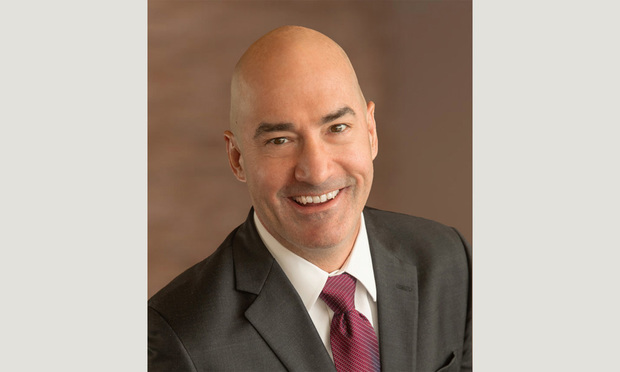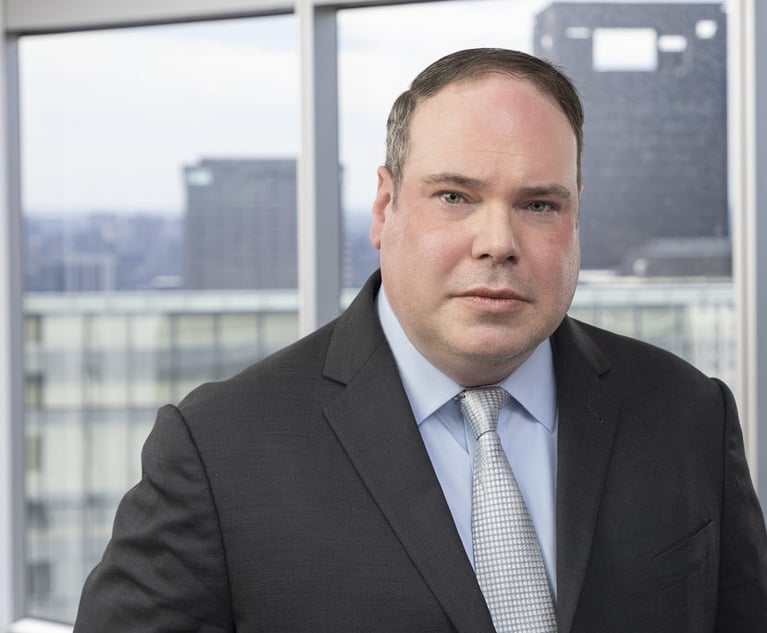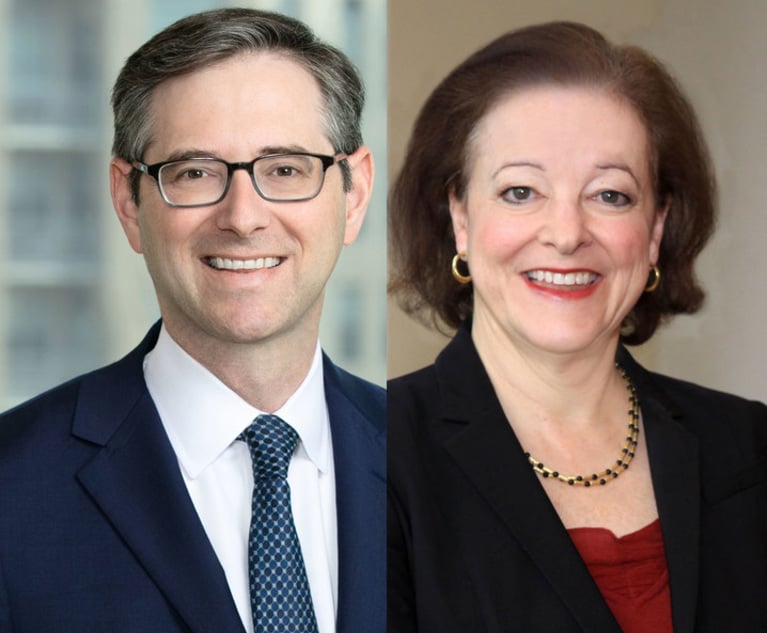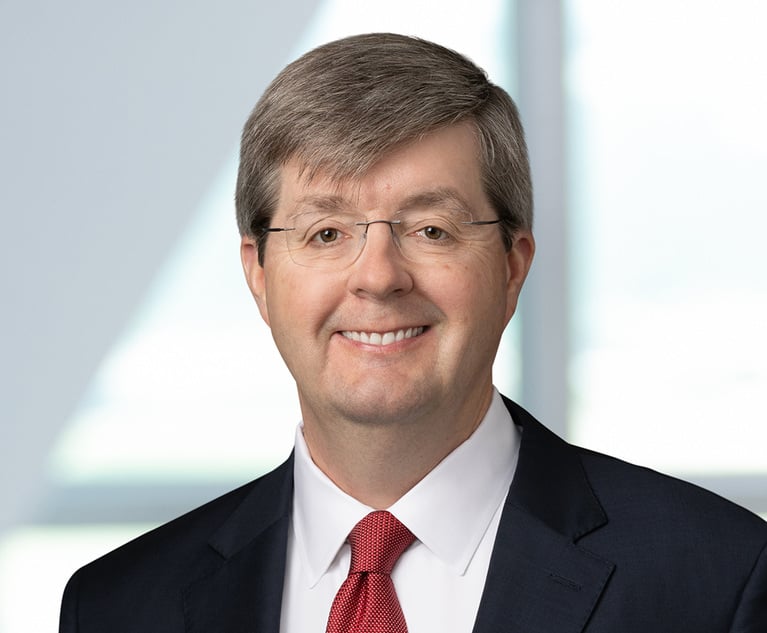COVID-19 Lawsuit Immunity: When Nobody is Accountable, Nobody is Safe
At least 25 states, either through executive orders or state laws have now granted COVID-19 liability protections for health care workers, health care…
June 25, 2020 at 05:05 PM
5 minute read
 Quentin Brogdon is a personal injury trial lawyer in Dallas, Texas. (Courtesy Photo).
Quentin Brogdon is a personal injury trial lawyer in Dallas, Texas. (Courtesy Photo).
At least 25 states, either through executive orders or state laws have now granted COVID-19 liability protections for health care workers, health care facilities, and nursing homes. Texas should not join them. It is said that those who do not study history are doomed to repeat it. How many times must we learn again that when nobody is accountable, nobody is safe? The COVID-19 pandemic should not be used as an excuse to push a longstanding agenda of preventing jurors from holding corporations accountable for causing preventable injuries and deaths.
Jurors don't always get it right, but they get it right many more times than not. For good reason, we trust jurors to decide whether one corporation owes another corporation billions of dollars. For good reason, we trust jurors to decide whether a violent criminal should be assessed the ultimate penalty, the death penalty. Yet now, some are arguing that we cannot trust jurors to decide whether health care providers, nursing homes and businesses are taking reasonable steps to protect their employees, patients, residents and customers from COVID-19.
The corporations and businesses pushing for immunity from COVID-19 claims would never, ever tolerate immunities or limitations that hindered their ability to sue other corporations for COVID-19-related claims or for any other claims. Yet, these same corporations and businesses seek immunities that deprive their employees, patients, residents and customers of any ability to hold them accountable in a court of law. Is the push for immunity from COVID-19 claims borne out a belief that jurors won't do the right thing, or is it perhaps borne out of an understanding that jurors will do the right thing?
Medical providers are some of the biggest proponents of immunity from COVID-19 claims. Yet medical providers in Texas already are the beneficiaries of an incredible array of statutory and common-law lawsuit protections that dwarf the protections given to any other group of potential defendants. These protections include extremely stringent threshold expert report requirements, caps on damages, periodic payment of future damages, limitations on discovery, caselaw that prevents "loss of a chance" from being actionable, and jury instructions that comment on the weight of the evidence, among many others. Even before COVID-19, jurors gave great deference and the benefit of the doubt to health care providers. Since COVID-19's appearance, the efforts of the many providers who have continued to provide care in the face of COVID-19 rightly have made providers even bigger heroes in the eyes of the public. This is a group that needs immunity from all COVID-19 claims?
Nursing home operators are another group seeking immunity from COVID-19 infection claims. Yet even before COVID-19, six in ten nursing homes had been cited for inadequate infection controls, and there is a longstanding pattern of operators in the nursing home industry putting profits over the safety of their residents and employees. The susceptibility of employees and residents in nursing homes to a pandemic such as COVID-19 was completely predictable. Populations in nursing homes are captive, elderly, and suffer from pre-existing medical conditions that weaken their resistance to infection. We have seen that COVID-19 infected few, if any residents and employees in nursing homes that took reasonable protective steps, while COVID-19 raged like a fire in dry grass through the nursing homes that did not take reasonable protective steps. Do we really want to reward the nursing homes that failed to take reasonable protective steps and endangered our loved ones with a gift of blanket immunity?
Some who favor immunity argue that scope and scale of the COVID-19 pandemic somehow makes the application of any standard of care unfair and problematic. Even during a pandemic such as COVID-19 however, health care providers, nursing homes, and businesses have the duty to take reasonable steps under the circumstances to protect their employees, patients, residents and customers. The standard of care is not a fixed, immutable standard. It adapts in a crisis and jurors certainly are capable of understanding that the standard of care must be adapted to the circumstances. Throwing out the standard of care clearly is not the answer.
Another straw man trotted out by proponents of immunity is the prospect of a flood of COVID-19 legal claims. But court records show that relatively few COVID-19 lawsuits have been filed. The feared flood of COVID-19 lawsuits has not materialized, and it does not appear that it will. There is no incentive, whatsoever for lawyers to bring unwinnable cases. Jurors ultimately have to weigh in on a defendant's conduct and defendants who took reasonable protective steps to guard against COVID-19 have absolutely nothing to fear at the courthouse.
Contrary to the arguments of the proponents of corporate immunity, preserving the right to hold negligent corporations accountable during this pandemic will help the economy, not hurt it. Immunizing corporations merely incentivizes them to make dangerous decisions that risk forcing a second shut-down of the economy. If businesses re-open sooner than it is safe to re-open, or re-open without taking reasonable steps to protect employees and customers, it will only increase the infection rate, dash the trust of employees and customers and prolong the economic downturn.
Our longstanding trust in jurors is not misplaced. We should not listen to the siren song of those who would say otherwise. When nobody is accountable, nobody is safe.
Quentin Brogdon is a partner in Crain Brogdon Rogers in Dallas. He is a former president of the Dallas Chapter of the American Board of Trial Advocates, and he is a fellow of the invitation-only International Academy of Trial Lawyers, American College of Trial Lawyers and International Society of Barristers.
This content has been archived. It is available through our partners, LexisNexis® and Bloomberg Law.
To view this content, please continue to their sites.
Not a Lexis Subscriber?
Subscribe Now
Not a Bloomberg Law Subscriber?
Subscribe Now
NOT FOR REPRINT
© 2025 ALM Global, LLC, All Rights Reserved. Request academic re-use from www.copyright.com. All other uses, submit a request to [email protected]. For more information visit Asset & Logo Licensing.
You Might Like
View All

Eversheds Sutherland Adds Hunton Andrews Energy Lawyer With Cross-Border Experience
3 minute read
After Nearly 2 Decades in the Role, Longtime Haynes and Boone General Counsel Passes the Baton
3 minute read
Bracewell Adds Former Pioneer Natural Resources Lawyer to O&G, Energy Transition Practices
2 minute readTrending Stories
- 1Stevens & Lee Names New Delaware Shareholder
- 2U.S. Supreme Court Denies Trump Effort to Halt Sentencing
- 3From CLO to President: Kevin Boon Takes the Helm at Mysten Labs
- 4How Law Schools Fared on California's July 2024 Bar Exam
- 5'Discordant Dots': Why Phila. Zantac Judge Rejected Bid for His Recusal
Who Got The Work
Michael G. Bongiorno, Andrew Scott Dulberg and Elizabeth E. Driscoll from Wilmer Cutler Pickering Hale and Dorr have stepped in to represent Symbotic Inc., an A.I.-enabled technology platform that focuses on increasing supply chain efficiency, and other defendants in a pending shareholder derivative lawsuit. The case, filed Oct. 2 in Massachusetts District Court by the Brown Law Firm on behalf of Stephen Austen, accuses certain officers and directors of misleading investors in regard to Symbotic's potential for margin growth by failing to disclose that the company was not equipped to timely deploy its systems or manage expenses through project delays. The case, assigned to U.S. District Judge Nathaniel M. Gorton, is 1:24-cv-12522, Austen v. Cohen et al.
Who Got The Work
Edmund Polubinski and Marie Killmond of Davis Polk & Wardwell have entered appearances for data platform software development company MongoDB and other defendants in a pending shareholder derivative lawsuit. The action, filed Oct. 7 in New York Southern District Court by the Brown Law Firm, accuses the company's directors and/or officers of falsely expressing confidence in the company’s restructuring of its sales incentive plan and downplaying the severity of decreases in its upfront commitments. The case is 1:24-cv-07594, Roy v. Ittycheria et al.
Who Got The Work
Amy O. Bruchs and Kurt F. Ellison of Michael Best & Friedrich have entered appearances for Epic Systems Corp. in a pending employment discrimination lawsuit. The suit was filed Sept. 7 in Wisconsin Western District Court by Levine Eisberner LLC and Siri & Glimstad on behalf of a project manager who claims that he was wrongfully terminated after applying for a religious exemption to the defendant's COVID-19 vaccine mandate. The case, assigned to U.S. Magistrate Judge Anita Marie Boor, is 3:24-cv-00630, Secker, Nathan v. Epic Systems Corporation.
Who Got The Work
David X. Sullivan, Thomas J. Finn and Gregory A. Hall from McCarter & English have entered appearances for Sunrun Installation Services in a pending civil rights lawsuit. The complaint was filed Sept. 4 in Connecticut District Court by attorney Robert M. Berke on behalf of former employee George Edward Steins, who was arrested and charged with employing an unregistered home improvement salesperson. The complaint alleges that had Sunrun informed the Connecticut Department of Consumer Protection that the plaintiff's employment had ended in 2017 and that he no longer held Sunrun's home improvement contractor license, he would not have been hit with charges, which were dismissed in May 2024. The case, assigned to U.S. District Judge Jeffrey A. Meyer, is 3:24-cv-01423, Steins v. Sunrun, Inc. et al.
Who Got The Work
Greenberg Traurig shareholder Joshua L. Raskin has entered an appearance for boohoo.com UK Ltd. in a pending patent infringement lawsuit. The suit, filed Sept. 3 in Texas Eastern District Court by Rozier Hardt McDonough on behalf of Alto Dynamics, asserts five patents related to an online shopping platform. The case, assigned to U.S. District Judge Rodney Gilstrap, is 2:24-cv-00719, Alto Dynamics, LLC v. boohoo.com UK Limited.
Featured Firms
Law Offices of Gary Martin Hays & Associates, P.C.
(470) 294-1674
Law Offices of Mark E. Salomone
(857) 444-6468
Smith & Hassler
(713) 739-1250






